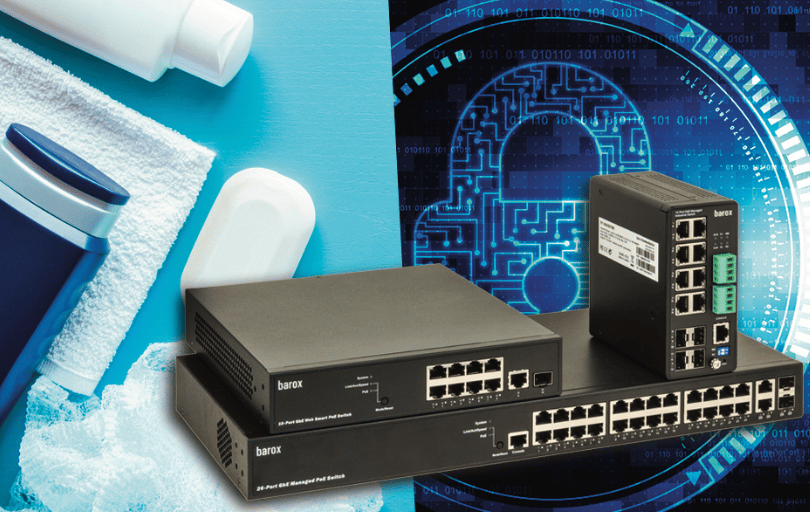barox is promoting the need for awareness not only in selecting video transmission products that utilise sophisticated measures to protect against cyber attacks, but also for all network users to proactively safeguard their own sphere of operation.
barox has built important safeguards for protecting sensitive data networks. Extending the scope for consideration with relation to network performance and system integration to VMS, barox view network security in terms of both cyber ‘hygiene’ and ‘cyber security’.
Cyber hygiene (lock the doors)
Just as an individual engages in personal hygiene practices to maintain good health and well being, cyber hygiene can help keep data safe and properly protected; where users of networks and other devices can take steps to maintain their system health and improve online security.
The implementation of a good cyber hygiene regime will encompass the precautions users can take with the aim of keeping sensitive data organised, safe, and secure from theft and outside attacks, such as malware, which can severely hinder network functionality.
“Good hygiene practice includes a mix of regularly updating software and changing the use of complex passwords, to prevent malicious activities,“ says Rudolf Rohr, Co-founder & Managing partner at barox. “Only those users who need admin-level access to devices should have device access, whilst other users should have only limited capabilities.”
In relation to supporting users with good hygiene practice, barox provides access port locking, switch support login with authentication certificate, and video transmission device ports can be automatically disabled if someone unplugs them.
Also, with IP-based Virtual LANs, application networks cannot access a barox switch, and protection is offered by the protocol. In short, Cyber Hygiene is good practice, enabling humans and network devices to work together efficiently. barox products help with the easy management of networks via access and distribution layers, delivering the tools to deliver secure data and video – and in preparation for future integrations, like IOT and other digital devices.
AMPS cyber security (controlling access)
To aid installers, integrators and system designers to maximise the security of their video transmission networks, barox have coined the term ‘AMPS’, standing for Access Protection, Management, Performance, and System, to explain the different areas of video network operation to be considered. With regards to Access Protection, barox utilise end-to-end communication encryption and certificates to lockout unauthorised network access. barox management of login covers the disabling of unoccupied ports, Mac locking, Access Control List, TACAS and multiple user control.
Also, to prevent cyber criminals catching login passwords via insufficiently encrypted equipment, between server and browser, barox use ‘dual encryption’ technology that provides its video transmission networks with a sophisticated high-security barrier.
The first security measure barox employs is Hypertext Transfer Protocol Secure (HTTPS), an established high-end transport encryption (used to protect online banking registration). barox uses HTTPS to encrypt the password on the way from the user’s browser to the server of the switch. Providing high-end resilience, barox do not rely on this barrier alone. Offering ‘double security’, barox provide firewall-like protection against man-in- the-middle attacks with Access-Control List (ACL) and Access Control Entries (ACE).


